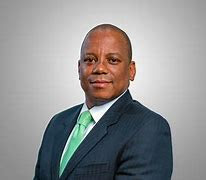The accountants who did the forensic audit on the National
Social Security Authority (NSSA) have launched a Supreme Court challenge to
overturn a High Court ruling that says this audit was biased against former
board chairman Robin Vela, or was incompetent.
The High Court had criticised the audit for being silent on
abuses by two former ministers of Public Service, Labour and Social Welfare,
when it quashed the audit findings in so far as they implicate Vela in
wrongdoing.
BDO Chartered Accountants, however, stand by their report
and want the Supreme Court to overturn the lower court. Simply by launching the
appeal, BDO have ensured that the audit report on NSSA now stands, since the
High Court judgment is automatically suspended until the Supreme Court hears
the appeal, the auditors noted in a statement yesterday.
BDO argue that the audit findings were professionally
arrived at after a thorough application of minds of the partners to the issues
before them and insisted the report was in no way biased or directed at any particular
individual who might have been found to fall foul of the operational procedures
and processes of NSSA.
In its grounds of appeal filed by Mr Raphael Tsivama, the
auditors argued that the High Court erred at law that the auditing exercise was
an administrative action which could be reviewed at the instance of Vela. The
lawyers also say the High Court erred in finding that the auditors showed bias
against Vela when there is no evidence supporting such a finding.
The High Court erred in concluding that BDO did not apply
its mind to the issues before it in the absence of any evidence controverting
the findings made in the audit report, and when the scope of such audit was
determined by the terms of reference set by the Auditor-General, said Mr Tsivama.
The High Court found that what it saw as a lack of
impartiality by BDO auditors was critical to the credibility and validity of
the entire forensic report.
Vela had challenged the report produced on behalf of the
Auditor-General of Zimbabwe compiled by BDO to probe the pensions body saying
it ignored crucial documents in what he averred was a targeted witch-hunt.
He sought the High Court to declare the charges in the
report implicating him nullified, on the basis they are grossly “delinquent,
biased, incomplete and targeted”.
The auditors failed to consider Vela’s responses to their
questionnaire, while they solicited to testify against him for a fee in the event
criminal charges were laid against him or he was hauled before a disciplinary
authority, it was argued in the High Court.
Based on the facts presented and failure by the auditors to
explain how they came up with such findings to the exclusion of some key
culprits implicated in the abuse of the pension fund, Justice Webster Chinamora
granted the application by Vela and quashed the report’s findings implicating
him.
He ruled that lack of fairness affected the audit report
resulting in the former NSSA chairman being recipient of unequal treatment as
compared to two former ministers, who are implicated in the gross abuse of NSSA
funds.
Vela proved that he was not yet NSSA board chairman when
the authority bought properties from a bank at inflated prices, but the report
ascribed to him the loss of US$4 million in a debt swap deal involving the
bank’s property.
The court also heard that a former minister forced NSSA to
sponsor a disability conference in her constituency for US$200 000 and to make
a further donation of US$200 000 to a school in the same constituency. But the
auditors did not criticise the minister for the abuse of pensioners’ funds.
During his tenure another minister had ordered NSSA to pay
US$400 000 to an individual, overturning a board resolution, and yet the
auditors faulted Vela for paying close to US$600 000 to former employees who
had been unfairly dismissed.
But the auditors’ argument was that the accusations against
two former ministers were clearly outside the scope of their mandate, which
Justice Chinamora rejected saying the excuse was “disingenuous if not
dishonest” because the terms of reference extended to human resources and “any
other issue that may arise”.
The judge stressed the point that the inaccuracies in the
report spoke to failure by the auditors to apply their mind to the issues for
determination before them. The allegations made by Vela, he said, called for a
rebuttal beyond glossing over it.
However, after the auditors elected not to dispute Vela’s
arguments, the court found no conceivable basis for them to say that the report
was backed by factual evidence. “On the principle that what is not denied is
deemed to have been conceded, the applicant’s claim would carry the day,” said
Justice Chinamora making inferences against the auditors.
“Either the auditors were biased against the applicant, or
they did not apply their mind to the facts before them when conducting their
forensic audit. On the extreme end, the court is compelled to conclude that it
was case of incompetence.” Herald









0 comments:
Post a Comment